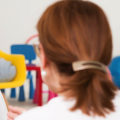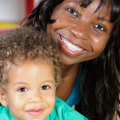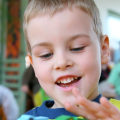Do you ever wonder if your baby is smiling back when you give them a warm and cheerful smile? Or if your daughter is smiling on her own? It's normal to be concerned about your baby's development, especially when it comes to something as important as smiling. At the age of six months, babies should be giving big smiles or expressions of happiness. They should also be easily sharing the enjoyment with you when they smile or laugh and look at you. But what about autistic babies? Do they smile?
Autistic babies don't usually smile or react during play.
They may also respond to certain expressions or experiences with facial expressions that are inappropriate. A study on the development of autism in infants, which compares the behavior of siblings of children diagnosed with autism with that of normally developing babies, has found that early symptoms of the condition (lack of shared eye contact, smile, and communicative babbling) are not present at 6 months. But gradually emerge and only manifest themselves during the latter part of the first year of life.
Another key developmental point that may be lacking in autistic babies is to look for the sounds they hear and also do things to get their attention. If your child isn't responding to your smiles or other facial expressions, it could be a sign that they may have autism.
If you're concerned about your baby's development, it's important to talk to your doctor. They can help you determine if your baby is on track with their development or if there are any signs of autism.





Leave a Comment